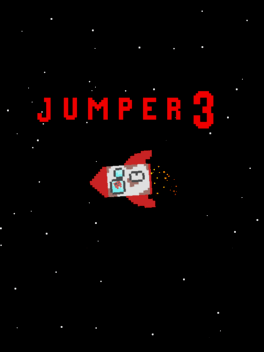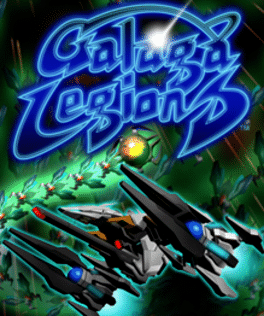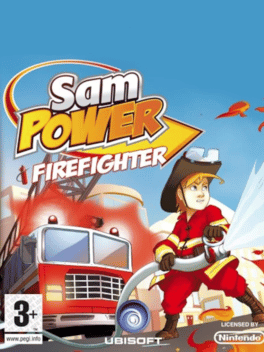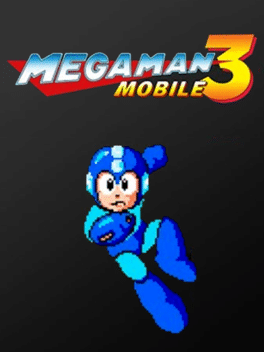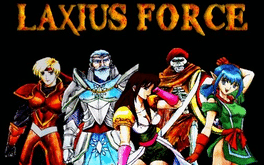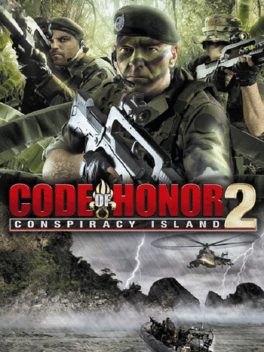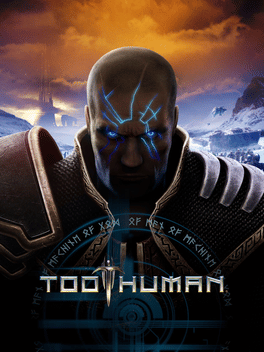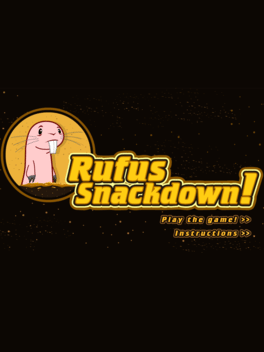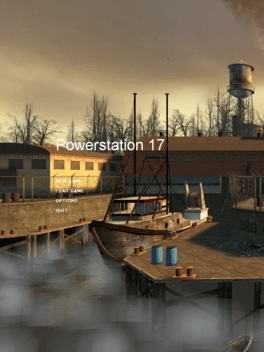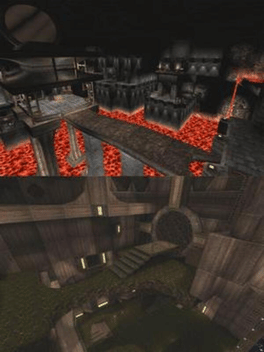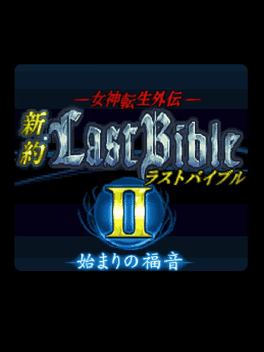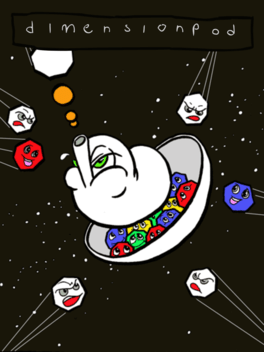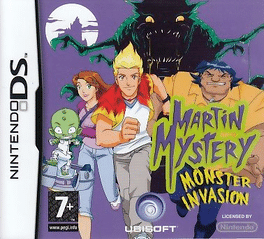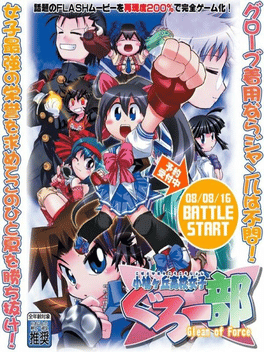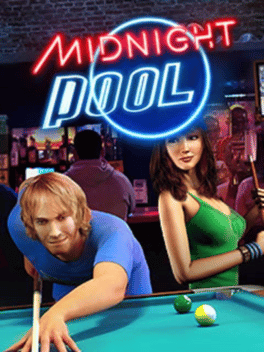New Games - Page 9944
-
Jumper Three
2008
Jumper Three
2008
Guide Ogmo in his search for a home on a myserious planet. Over the course of the game Ogmo will split into five seperate forms with different abilities, and you'll have to switch between them to overcome the many obstacles in your path. -
Galaga Legions
2008
Galaga Legions
2008
star 6.6Galaga Legions is an Xbox Live Arcade exclusive video game created by Namco Bandai Games. The title was developed by the same team who created Pac-Man Championship Edition. This game is also included in the Namco Museum Virtual Arcade collection, and in Pac-Man & Galaga Dimensions for Nintendo 3DS. A DX version of the game was released on Xbox Live Arcade as part of the Namco Generations series on June 29, 2011, with the PlayStation Network version released in August 2, 2011. -
Team Fortress 2: A Heavy Update
2008
The Heavy Update, officially known as A Heavy Update, was the third major content update for Team Fortress 2. The focus of the update was the Heavy class. As was customary, three new weapons for the class were revealed, and the slowdown mechanic was introduced. To accompany the Sandvich consumable weapon, Meet the Sandvich was released alongside the update. A new game mode, Arena, was introduced. It focused on combat between the two teams and brought five new maps to the game. Two other maps, Badwater Basin and Steel, were also included. -
The Cheetah Girls: Passport to Stardom
2008
Fresh off their movie debut, the Cheetah girls are off to another wild musical adventure - this time to meet their international fans. Join Aqua, Chanel and Dorinda as they sing, dance and accessorize their way through India, Spain and New York City! -
Mega Man 3 Mobile
2008
Mega Man 3 Mobile
2008
Mega Man 3 Mobile is the mobile port of Mega Man 3 (NES). It was released for mobile phones and had adjustments to make the game playable on numeric keypads. -
101 Puppy Pets
2008
-
Laxius Force
2008
-
Code of Honor 2: Conspiracy Island
2008
star 4.1The follow-up to "Code of Honor: Foreign Legion," the new Code of Honor 2: Conspiracy Island immerses players in extreme action as they try to save the region of Guiana after a terrorist group apprehends an experimental nuclear reactor. On the coast of South America, in the quiet region of Guiana, lurks a deadly terrorist group. The Global Revolutionary Front rebels are heading to the Isle of Ile Royale to gain control of an experimental nuclear reactor. A series of events including the stealing of the nuclear reactor thrusts the whole territory in extreme danger. It is up to the Foreign Legion to capture the terrorist group and save the day. The player becomes a member of the Foreign Legion and heads into battle to conquer the enemy and save Guiana. Using military skills in order to overcome the terrorist group, the player has to think fast in order to stay one step ahead. The player is forced to perform under intense pressure with no time to spare in regaining control of the reactor. The clock is ticking, can the -
Too Human
2008
Too Human
2008
star 5.5As the cybernetic god Baldur, players are thrust into the midst of an ongoing battle that threatens the existence of mankind. An ancient machine presence has forced the hand of the gods, and now Baldur is charged with defending humanity from an onslaught of monstrous war machines bent on the eradication of human life. -
Rufus Snackdown
2008
Rufus Snackdown
2008
Rufus Snackdown is a game from the Disney.com webring. Players control Rufus as he eats corndogs while avoiding freeze-drying robots. -
Powerstation 17
2008
Powerstation 17
2008
Pick up the crowbar of research scientist Gordon Freeman, who finds himself on an alien-infested Earth being picked to the bone, its resources depleted, its populace dwindling. Freeman is thrust into the unenviable role of rescuing the world from the wrong he unleashed back at Black Mesa. And a lot of people, people he cares about, are counting on him. -
CommanDSKeen
2008
CommanDSKeen
2008
CommanDS Keen is an adaptation of a PC platform game to the NDS. It is an adaptation of an open source software originally named CloneKeen Caitlin Shaw, which is a platform-based video game series produced by id Software and released by Apogee Software in the early 1990s. This DS port allows you to play episodes 1 Marooned on Mars, 2 The Earth Explodes and 3 Keen Must Die! -
The Living End & Elder World Waystation
2008
Two-map SP unit: a large medieval dungeon in an underground lava cave (using rtGnosis textures), and a medium sized IKbase-themed stargate facility. It comes with a couple of new sounds and a custom skybox. -
Megami Tensei Gaiden: Shinyaku Last Bible II - Hajimari no Fukuin
2008
Boy, be the light that illuminates the world. The gospel of the beginning rings out in the land covered with despair. -
ColourPod 2: DimensionPod
2008
You are the last dimensionPod. Your dimensions have been driven to Darkness. Collect colour fragments on your colour Lens to accumulate abilities used to destroy colourless fragments. Warp to defeat fragments in both dimensions. Complete missions to unlock hints that will help you master dimensionPod. Try to restore pixels to your world! -
Glove On Fight 2: Gleam of Force
2008
Glove on Fight 2: Gleam of Force is the sequel to the doujin fighter Glove on Fight (2002), both developed by French Bread. Unlike the original, this game features an all-original cast of characters drawn by Harukaze Namikai and an all-new story mode. -
Pirates: The Key of Dreams
2008
star 5The plot sees players, in the role of a navy captain, sent undercover in the Caribbean to retrieve an artifact known as "The Key of Dreams" from notorious pirate Blackbeard.[5] The story mode takes place over 10 levels. Players directly control a sailing ship, seen from an overhead view, to do battle with. Players can recruit various crew members, such as navigators and master gunners to upgrade the abilities of their ship, in addition to their weapons which include cannons, mines and rockets. In addition to the story mode, Pirates: The Key of Dreams also features a single player skirmish mode, where the player battles the computer in a variety of arenas, as well as an offline multiplayer battle mode that supports up to four players. There will be 35 skirmish/multiplayer battle maps in addition to bonus ships not selectable in the story mode.[6] -
Midnight Pool
2008

